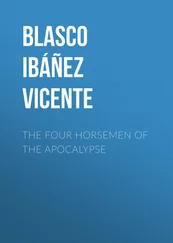After a particularly harrowing encounter with a veritable army of spiteful and vicious rats, an antique store on the Piazza di Santa Caterina caught his attention. The crowded, dusty shop with dark corners and shelves of collectibles was manned by a gentleman with a stooped back and a tightly knit fuzz of grey hair that encircled the sides of his head. It was close to the outdoor market, where scraps and essential street gossip could always be had, and most importantly, the door to the shop sat open wide all day in the hope of enticing tourists.
Santiago cased the store for weeks, working his way up to surreptitious wanderings through the brown furniture that smelled of wood, age, and turpentine. At the end of his fourth week, he found a quiet corner behind a bureau with a small shaft of sunlight for warmth and fell asleep, though he made sure he was out before the shop closed for the evening. He came back the next day and the next, always sleeping in the same blanket of light, always being sure to leave before the door got shut for the night.
One evening he did not wake up in time and spent the night meandering through the corners of the shop, strolling over armoires, sniffing old upholstery, and trying not to knock vases off shelves. He caught a mouse that night and quietly devoured the entire thing save for the intestines, which he politely left near the front desk for the shopkeeper as a token of his gratitude for the night’s lodging.
He slipped out before the man found him the next morning, but when Santiago returned for his nap in the sun that afternoon, he caught the man looking at him around the edge of an old wardrobe. He braced to flee, his body taut and low to the ground, but the man simply turned and walked away, leaving Santiago to settle back in the pool of sunshine with a pounding heart. It took longer to fall asleep that day.
Santiago made sure to be out before the store closed that night, a practice he maintained for a while. But as the days went on, he sometimes missed the tinkling of the bell above the door—his cue to leave—as the man brought in the outside displays prior to closing the shop, his hearing having gone as frail as his bones. When he spent the night in the store, he always made sure to dispatch a mouse or sometimes a rat in payment, depositing the appropriate remains near the shopkeeper’s desk. Sometimes the best he could find was a spider or two. Delicately spitting the legs out by the desk often proved to be a challenge, and on those nights he was never sure if the man appreciated that Santiago had done his best in his nighttime patrol of the store.
The first afternoon the man set a bowl of cream by the wardrobe, Santiago bolted in fright, certain it was a trick of some sort. When he returned the next morning, he selected a different spot for his nap, a more secluded corner behind a pale blue dresser. There was no sun, but Santiago made do in his new spot, his body folded around itself amidst the heavy wooden monuments of another time.
After a week in the new location, the bowl of cream reappeared just around the corner from the dresser. Santiago had not heard the man leave it. The mice had been thin for the last several weeks, and Santiago could feel the press of his ribs against the floor whenever he settled down to sleep. He approached the bowl tentatively and drank his fill.
And so the cat and the man developed a routine. Santiago kept the store free of rats, mice, and invertebrate vermin in exchange for a safe place to sleep and a pool of creamy milk every second morning. Once he felt confident that the shopkeeper was okay with his presence, Santiago even readopted his original pool of sunlight for his afternoon naps. After a few weeks, the man started to leave a door that led to a set of stairs open at night, and on the fifth night Santiago crept up the stairs, his heart skittering like it never had in his years of dumpster raiding and nightly sparring. The stairs led to a small set of quarters with a covered deck that looked out on Pompei. Santiago spied the shopkeeper in his undershirt sitting hunched at a table. The man looked up, and Santiago whirled and bolted to the safety of the antique store.
He left the shop before closing the next day and found his way through hallways and a fire escape to the roof of the neighboring house. Then he squeezed through some slats and onto the man’s covered deck, where he spent the night under the shelter pressed against the wall, while the man sat inside in his white undershirt writing in a black notebook.
Days turned into weeks and the summer turned into fall, and both Santiago and the shopkeeper became a year older. Santiago still made his rounds on the streets for a few hours most mornings, inhaling the intricate archive of smells, calling on old cronies, and tracking the ever-shifting landscape of acrimony and alliance among street dwellers. But the stray-filled corners and casual violence of the streets felt dangerous for a one-eyed cat whose bones no longer moved with the suppleness of youth. His years and reputation as a fighter earned him a sort of respect, but always as he sauntered through the piazza, his stubby tail aloft, he felt the eyes of the other animals on him, sizing him up. And soon it no longer felt like a choice to return to the safety of the shop and the man’s deck before nightfall. Now it was a strategy for survival.
It was the man who named him Santiago. He had been called other things before: Gingie when he’d first been snatched up as a bundle of soft, orange fur in the streets by one of the children in his former home. And then more often than not—when his fur ceased to be so soft, and before he left that family—he’d been labeled Nasty Tom or Wretched Beast. On the streets he’d been known as Stubs, and while said mostly with respect, Santiago wasn’t at all sure he liked the allusion to his physical imperfection; as if the other animals might have the occasional laugh or two after he and his failing hearing had walked on past. Santiago liked his new name better. He liked the way it rolled off the man’s tongue, gently, almost reverently, as if they were both aged and hardened warriors who respected one another.
When Santiago first started spending time in the back of the shop, he discovered that the man spent a lot of time talking to a framed picture of a woman on his desk. He would speak to her for hours, his voice beating a rhythmic but gentle staccato, while Santiago snoozed inattentively on the floor.
Santiago could not pinpoint exactly when the shopkeeper started talking to him. It happened gradually in short bursts. The man would say, “Santiago, what do you think of this?” or “Well now, what do you suppose we can sell this for?” when a new piece of furniture would be brought in, or “Santiago, can you believe this weather?” when the rains came.
As time went on, the man began commenting on bits of the daily news, which he and Santiago listened to on the radio, asking Santiago’s opinion of the Pope and this climate change thing, Greek economic recovery, or the murder of Cecil the lion. The man also liked to talk about someone named Sofia. Santiago learned that Sofia took her coffee with milk and sugar, made excellent chicken scaloppine, had a sixth sense regarding the value of antiques, and preferred pieces from the Queen Anne period. What Sofia would have thought of something—everything—was very important to the man, and there were many times when the shopkeeper would go very quiet after speaking of Sofia and just run his fingers softly over a particular item.
Santiago often did not understand precisely what the man was talking about when he said something to Santiago or to the photo, but he liked to hear the man speak. He would often sit on the desk in the shop with his paws curled beneath him while the shopkeeper filled in information on an inventory ledger, paid bills, or fixed small pieces of furniture.
Читать дальше












